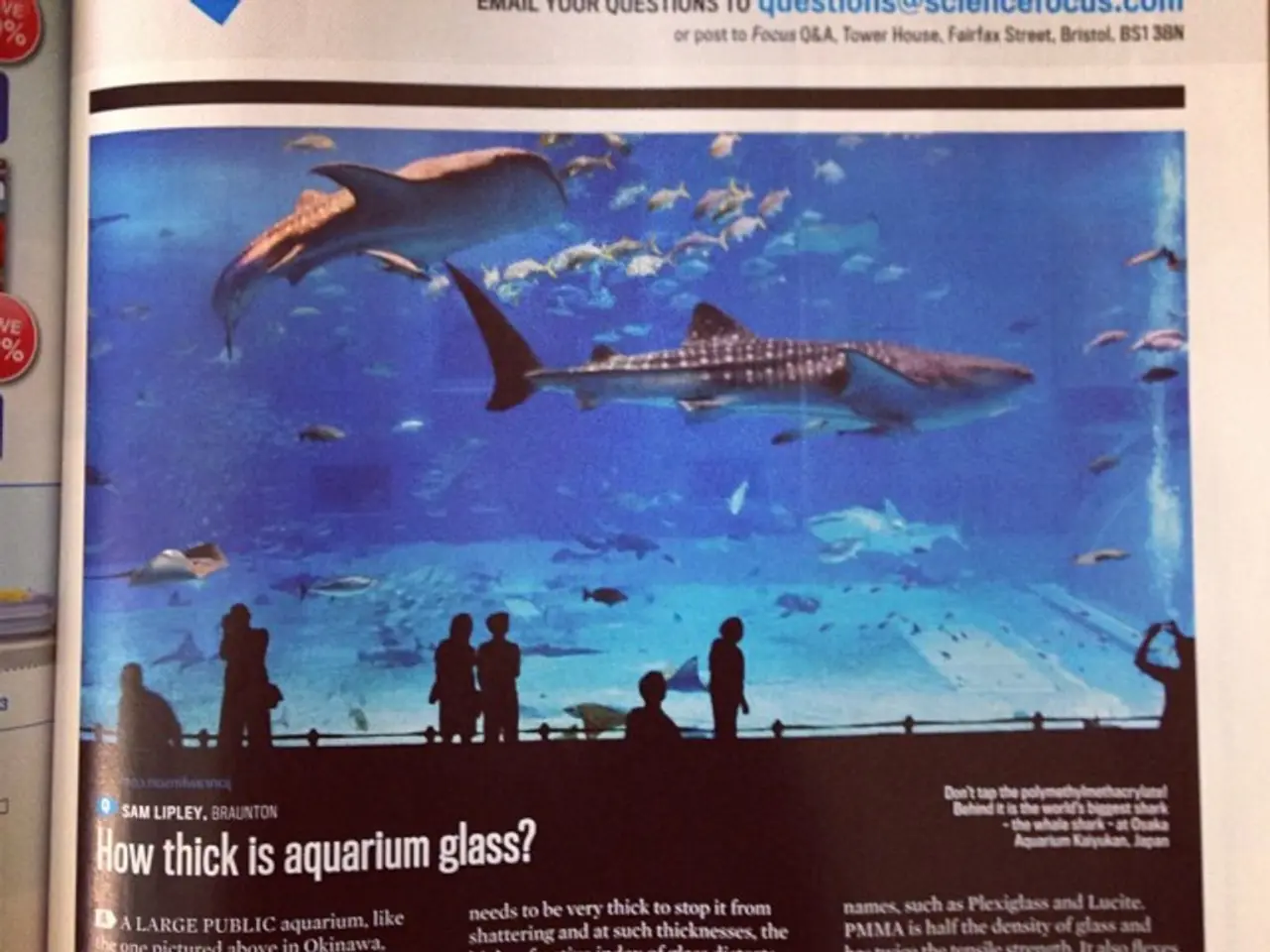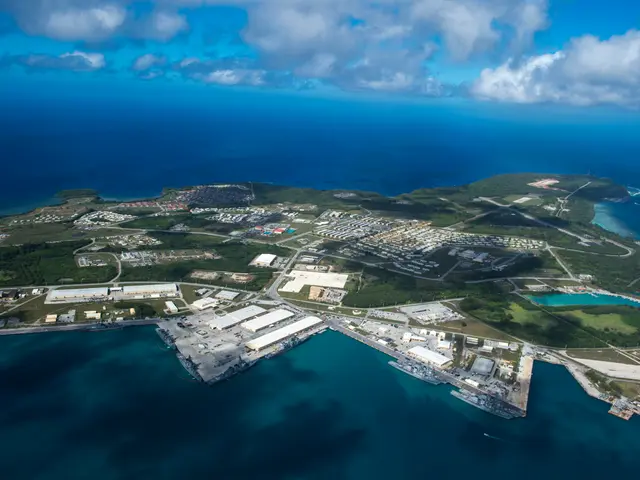Potential environmental issues may impede building progress at Florida's broadly known immigration facility, nicknamed 'Alligator Alcatraz'
In the heart of the Florida Everglades, a makeshift immigrant detention center named "Alligator Alcatraz" has been causing controversy. The facility, operated by the state of Florida under Governor Ron DeSantis, has been found to violate environmental laws and faces legal challenges regarding the rights of detainees.
The detention center, which opened its first phase in July at a lightly used, single-runway training airport, is now under scrutiny for its potential environmental harm. The facility, a joint partnership between the state and federal government, has been accused of causing significant environmental harm, including risks to the sensitive Everglades ecosystem such as runoff pollution and habitat loss.
Expert testimony has shown that the operation and construction of the detention center have caused these issues. As a result, a federal judge ruled that the facility violated the National Environmental Policy Act (NEPA), as it was constructed without the required environmental impact studies or public input. The judge ordered an immediate halt to construction and banned new detainees, requiring the state to begin dismantling parts of the camp within 60 days.
The state government, run by the Florida Department of Highway Safety and Motor Vehicles under David Kerner, operates the detention center. However, federal officials, including the Trump administration, have supported the facility but argued that federal environmental law did not apply because it was a state operation on state lands.
Inside the detention center, large white tents with rows of bunkbeds surrounded by chain-link cages house the detainees. Reports have surfaced of issues with food, toilets, air conditioning, showering, and prescription medicine.
Meanwhile, a second lawsuit has been filed, claiming that detainees' constitutional rights are being violated. The suit alleges that detainees are barred from meeting lawyers, are being held without any charges, and federal immigration court has cancelled bond hearings.
The location in the Everglades was chosen by Governor DeSantis as a deterrent from escape, similar to the island prison in California that Republicans named it after. U.S. President Donald Trump has suggested that "Alligator Alcatraz" could serve as a model for future lockups nationwide.
However, environmental groups argue that the additional paving at the site could lead to an increase in water runoff to the adjacent wetlands, potentially harming the habitat for endangered Florida panthers. Witnesses have testified that at least 20 acres (8 hectares) of asphalt have been added to the "Alligator Alcatraz" site. There are concerns that harmful chemicals could potentially spread into the Everglades due to this additional paving.
As the legal battles continue, the future of "Alligator Alcatraz" remains uncertain. The state has until late September to prepare arguments against an effort to get the civil rights litigation certified as a class action. In the meantime, the state is required to comply with environmental regulations to prevent further damage to the Everglades ecosystem.
Read also:
- Germany's three-month tenure under Merz's administration feels significantly extended
- United Nations Human Rights Evaluation, Session 45: United Kingdom's Statement Regarding Mauritius' Human Rights Record
- Hurricane-potential storm Erin forms, poised to become the first hurricane in the Atlantic Ocean this year.
- Socialist Digital Utopia with Zero Carbon Emissions: A Preview, Unless Resistance Arises








